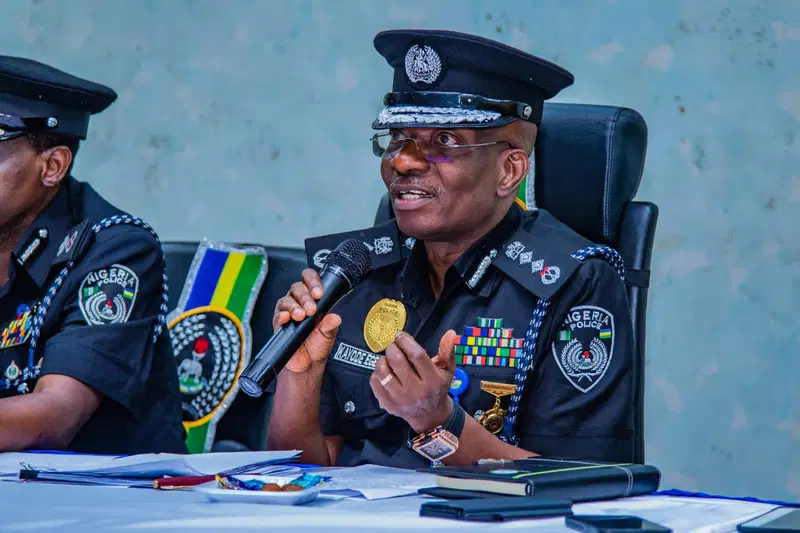An estimated 626 persons were killed across Nigeria in the six months between the start of the election campaign and the commencement of the general and supplementary elections, the Nigeria Civil Society Situation Room has said.
The electioneering campaigns began in October 2018 while the last of the elections were held in March.
The Coalition observer group disclosed this on Tuesday at the released of its final report on the 2019 general election in Abuja.
The group said the number increased compared to the 106 killed in the 2015 general elections.
The Independent National Electoral Commission (INEC) conducted the presidential and National Assembly elections on February 23, while governorship and state assembly elections were held on March 9.
Supplementary elections in five states were also held in March.
The organisation in its report on the elections listed the numbers of deaths per the six geopolitical zones in the country.
”Situation Room is deeply worried about the spike in politically motivated killings in the period leading up to the elections,
”At least, 626 people were said to have been killed between the start of the campaign in October 2018 and the final election in March 2019, ” the coalition observer group said.
According to the report, the North-west region recorded the highest number of deaths with 172 killed during the elections, while the North-east followed with 146 fatalities.
Also, the report revealed that the South-south and North-central had 120 and 111 fatalities respectively.
Sixty-three people were killed in the South-west, while 14 were killed in the South-east.
The organisation also revealed that Benue, Borno, Kaduna, Rivers, and Zamfara led with the highest casualties during the elections.
PREMIUM TIMES had reported election violence in states like Benue, Ebonyi, Imo, Lagos, Kano, Rivers and Akwa Ibom.
Only a few of the perpetrators of the violence were arrested by security agencies who seemed overwhelmed.
Rivers State has been notorious for electoral violence since 2011. There were also reported attacks on National Youth Corps Service members in Etche local government. the casualty included soldiers who engaged in shootouts with armed political thugs.
According to a report by the Rivers Commission of Inquiry, a monthly average of 19 killings occurred in the state in election violence between November 2014 and April 2015.
The commission instituted by Chibuike Amaechi, the former Rivers State governor, noted that out of the 97 allegations of killings it received, 94 of them occurred between November 15, 2014, and April 11, 2015.
Apart from killings that occurred during the 2019 polls, there were also many incidents of ballot box snatching, assaults, abductions, and harassment.
Also, the European Union Election Observation Mission (EU EOM) in its 2019 election report published on PREMIUM TIMES in June, said about 150 people were killed in election-related violence in different parts of the country.
”The elections became increasingly marred by violence and intimidation. This harmed the integrity of the electoral process and may deter future participation.
”Around 150 people died in election-related violence during the campaign period and over the election days. INEC reported attacks on its offices, and also fatalities, abductions and sexual assault against its officials.” the EU report stated.
The report said besides the number of killings, the elections at both the federal and state levels witnessed problems such as thuggery, rigging and vote-buying. While the federal elections witnessed a voter turnout of 35.6 per cent, the state-level elections saw an even lower turnout.
“The inability of the political parties to play by the books contributed in no small way to heating up the polity during the elections,” it said.
The organisation, however, suggested that INEC and security agencies should ensure accountability for acts inimical to the integrity and credibility of the polls especially individuals complicit in the burning of INEC offices, election materials, snatching of ballot boxes and other electoral offences.
The Independent National Electoral Commission has lost no fewer than 9,836 smart card readers in over 42 attacks on its offices and staff in three years.
Also, more than 1,149 persons, including INEC employees and security officers were killed in the three elections held in 2011, 2015 and 2019. Ballot papers, cubicles and other materials were similarly destroyed.
Last Friday, an INEC worker identified as Anthony Nwokorie, was shot dead by gunmen while conducting the continuous voter registration in the Ihitte Uboma Local Government Area of Imo State.
A viral video showed the hoodlums forcing registrants to lie on the ground while destroying registration materials and vowing that elections would not hold in the South-East.
Following the violent assaults on its assets and staff, the electoral body has expressed fears over the 2023 elections, stating that there would be no results at polling units where violent incidents were orchestrated.
The Resident Electoral Commissioner in Akwa Ibom State, Mike Igini, in an interview with The PUNCH on Monday, warned that no return would be made where violence was deliberately precipitated to undermine the electoral process.
Describing the attacks on the commission as regrettable, the resident electoral commissioner assured Nigerians that the body was devising strategies to protect its offices, assets and personnel ahead of the 2023 general election.
Nigeria recorded 339 incidents of election violence in 2022 – Report
Nigeria recorded 339 incidents of election violence in 2022, Kimpact Development Initiative, a nongovernmental organisation working to advance good governance and democratic rights, said.
The organisation said 165 people lost their lives as a result of political violence.
The data was released last Thursday at a programme themed: “National Dialogue on Electoral Violence Mitigation Ahead of the 2023 Elections.”
The programme was put together to discuss election violence in Africa’s biggest democracy. The 2023 election is significant in various ways and this is why we need to have a conversation on what has been happening, said Bukola Idowu, the executive director of KDI.
“This election is unique because we have seen a surge and awakening of young people who are interested in this election,” he said.
Nigeria holds are general elections between February and March.
The data released by KDI shows that Nigeria recorded 2,175 incidences of violence last year. Of the total, 1,636 were non-electoral violence incidents while 339 were electoral violence incidents.
With 99 reported incidents, Nigeria’s south-west has the highest incidences of election violence followed by south-east 77; south-south 56; north-central 54; north-west 32; and north-east 21.
“Over the years, electoral violence has been on the increase,” Mr Idowu added. “It is almost impossible to have an election without violence. It is not acceptable because the election is a civic affair, not a military affair.”
In his goodwill message, the Country Director of the International Republican Institute (IRI), Santiago Stocker, said the importance of mitigating election violence cannot be overemphasised.
Credit: Premium Times, Punch







